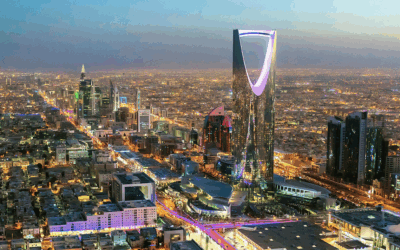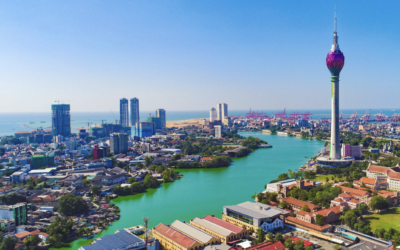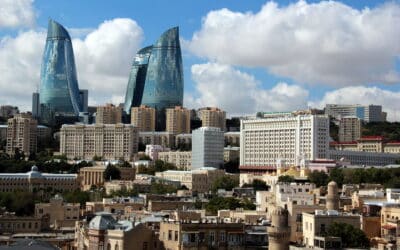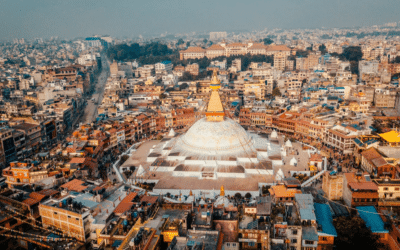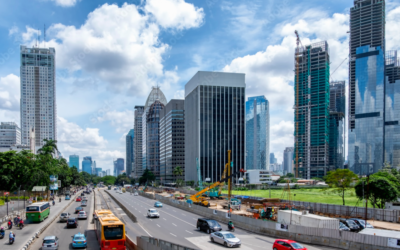Steeped in history and with an undeniably pro-business approach, global real estate investors have had their eyes on Bahrain for awhile.
Today, as one of the Gulf’s most established centers for finance and trading, Bahrain is still deeply committed to improving its competitiveness.
Why invest in Bahrain? Numerous geographical advantages and its history of economic stability are just two reasons.
Bahrain: Investor’s Oasis in the Gulf
A strategic location makes Bahrain a natural hub for global trade. Through its air, sea, and land connections, Bahrain is a gateway to the Middle East and beyond.
From its heritage in oil production, the economy in Bahrain has now evolved into tech, real estate, and tourism over time.
Bahrain commits to best fiscal practices. Stability and a fixed currency conversion with the US dollar provides assurance to traders, with its dinar maintaining a peg of 2.65 against the greenback.
Not everyone is a fan of the US dollar – but it’s still a far better option compared to many of the small, exotic currencies in the Middle East. You’re much safer investing in Bahrain with its dinar than, for example, the Jordanian dinar.
Meanwhile, expats living in Bahrain enjoy a high standard of living, elite medical care, and first-rate schools for their children.
Cities and Towns in Bahrain
The capital city is Manama, which is also the largest city in Bahrain. This is where you’ll find the financial district, shopping malls, upscale hotels, and a vibrant arts and culture scene.
Visitors can walk from one of the ancient souks to one of the traditional homes in the city, or to the Muharraq Pearling Trail — a UNESCO World Heritage site. It’s also where you’ll find the Bahrain International Airport, the country’s main transport hub.
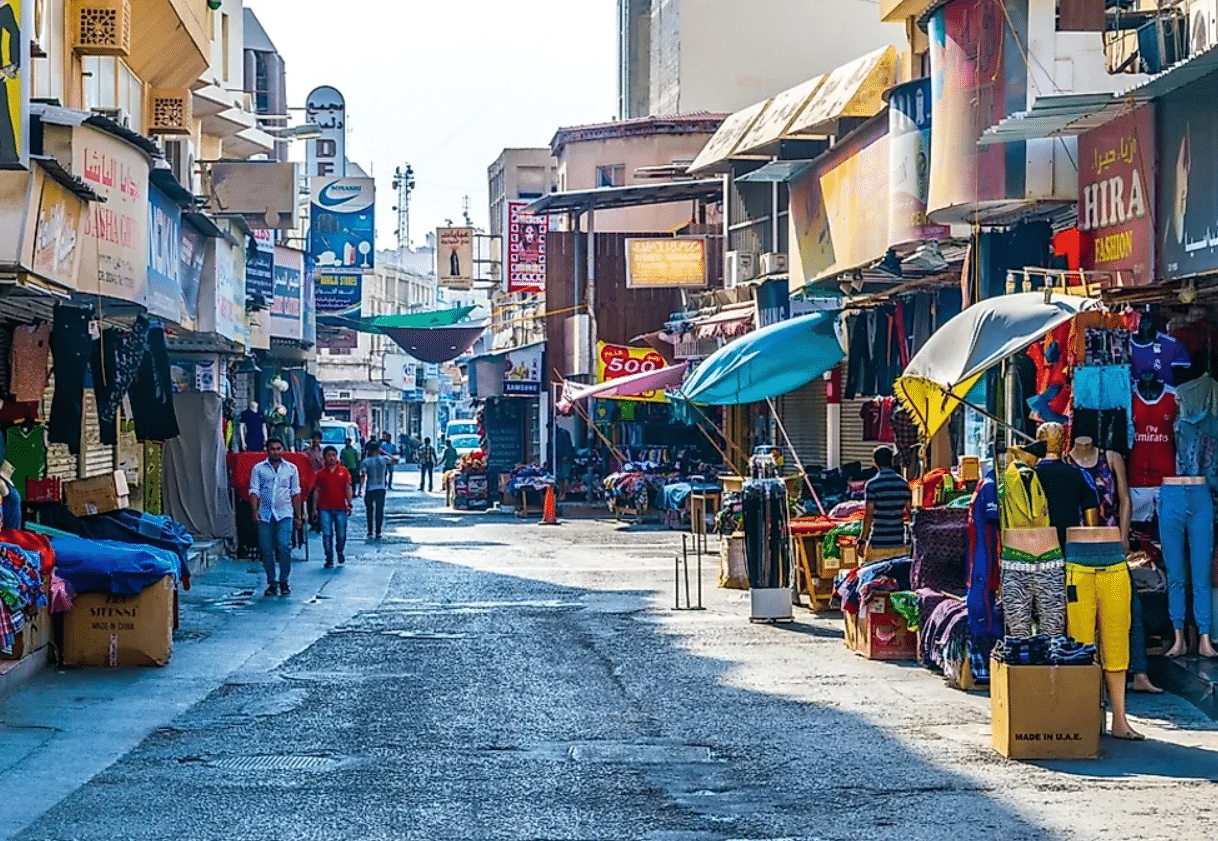
Unlike many of the Gulf’s recently-built cities, Manama has been a major port for centuries and has an established history.
Budaiya, also known as The Millionaires’ Neighborhood, is an area of big, expensive villas with lush gardens, while Saar is another up-market area with similar properties.
Riffa is a town with a good reputation of having a peaceful environment and a rich area. It’s more peaceful than the city center but has all the modern conveniences too.
Sitra, an industrial city, houses Bahrain’s manufacturing and chemical industries. The area is important part of Bahrain’s economy due to its location in the main port and industrial zone.
These smaller towns offer relatively high living comfort levels and are very popular with expats and families seeking a quieter lifestyle.
How to Start a Company in Bahrain
Bahrain’s unique geographic position and liberal policies make it an appealing place to set up operations. In particular, foreigners are allowed to own 100% of shares in all types of companies, even ones that own real estate.
Foreigners starting a business in Bahrain can operate under either a sole proprietorship or an actual company.
If trade is your specialty you won’t face many restrictions other than dealings in alcohol, tobacco, arms, and waste products. These limits are in place on foreigners and locals alike though.
Bahrain has also established free economic zones, such as the Bahrain International Investment Park (BIIP) and the Bahrain Logistics Zone (BLZ), with some tax incentives and exemptions for businesses.
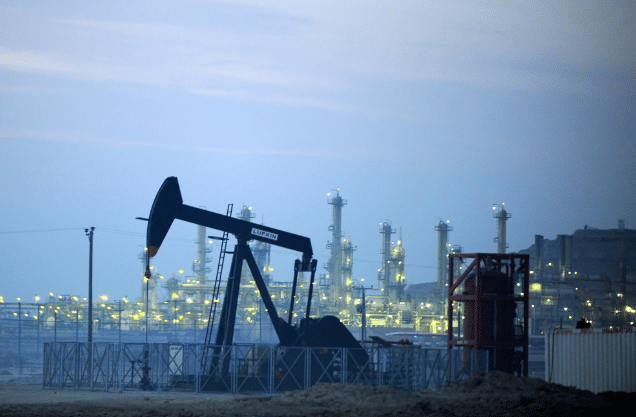
Businesses in the oil and gas sector have a high tax rate of 46% on net profit. This applies to local and foreign owners alike. However, this is countered by a standard corporate tax rate of 0% for most other companies in Bahrain.
When you’re ready to start a business in Bahrain, make sure the name you want for your company follows the naming conventions of Bahrain and not already used by another entity.
Afterwards, register it with the MOICT. Main documents include your business plan, IDs of partners or owners, and the registration fee.
The processing time to open a company in Bahrain can be about a month, but does often take less.
Trading Stocks in Bahrain
Bahrain is one of the most vibrant financial centers in the Middle East. Pro-investment laws and strategic positioning have certainly helped its case.
The Bahrain Bourse, originally known as the Bahrain Stock Exchange (BSE), is the main one in Bahrain which hosts 42 companies.
Bahrain’s stock exchange operates under an established framework with a reputation of transparency and security of capital.
Fortunately, for anyone investing in Bahrain without living in or visiting the country, it’s often not necessary to fly here in-person to open a brokerage account and trade on the local stock exchange.
Many brokers allow non-locals to open accounts and trade stocks remotely. Also, foreign investors can now own up to 100% of a company listed on the Bahrain Bourse.
Bahrain’s bond market is highly developed, spanning government to corporate bonds and offering investors fixed income exposure.
Bahrain’s Currency: The Dinar (BHD)
The Bahrain dinar (BHD) is pegged against the US dollar and is known for relative stability compared to the Middle East’s more exotic currencies.
BHD is issued and controlled by the central bank with notes available in denominations of anywhere from 1 to 50 dinar.
Currency can be exchanged at banks and ATMs all over Bahrain. Banks here accept most major international credit/debit cards, which makes it easy for tourists and expats alike to transact.
A fixed exchange rate of BHD to USD makes a reliable currency for financial planning and investment decisions. One BHD is 2.65 USD, officially.
Bahrain’s foreign exchange reserves managed by the Central Bank are substantial, which helps ensure its ability to maintain this peg.
Industry in Bahrain
The oil industry is the main pillar of Bahrain’s economy. Major players include companies like Bapco (Bahrain Petroleum Company), which is the country’s national oil firm and largest operator.
Besides the obvious oil investments in Bahrain, commodities like aluminum are a staple for industry here. The medical sector is seeing steady growth as modern pharmaceutical plants grow in popularity here.
Bahrain’s central position in the Persian Gulf makes it a critical link for real estate and logistics. The Khalifa Bin Salman Port and Bahrain National Logistics Gateway have also contributed significantly here.
The ports play an important role not only for Bahrain but also for the whole Middle East and North Africa regions, which are all major commerce gateways in their own right.
How to Buy Crypto in Bahrain
Back in 2018, the Central Bank of Bahrain became the first authority in the Middle East and the second financial regulator globally to issue an official regulation for crypto-assets.
A year later, the CBB also implemented wide-ranging rules for licensing and operating cryptocurrency-related businesses such as exchanges and wallet service providers.
Crypto businesses must get a CBB license in order to legally operate in Bahrain. The process including detailed due diligence on the business, its management team, etc.
The companies are required to comply with AML/CFT requirements such as CDD and TM procedures. The cryptocurrency industry, too, must protect consumer data according to data protection laws.
As a pioneer in blockchain, Bahrain has promoted itself as the Gulf’s go-to destination for blockchain-related tech solutions and research activities, inviting global entrepreneurs to experiment with new-fangled ideas to enhance their offerings.
Bahrain’s crypto industry is still developing. As Bitcoin, Ether, and other coins become more widely used across the world, the government’s stance on crypto will likely evolve.
Real Estate in Bahrain
Foreigners can own freehold property in Bahrain, so long as it is within zones designated for foreign ownership. These zones include: Amwaj island, Abraj Al Lulu, Al Juffair, Al Reef Island, Durrat Al Bahrain, and Durrat Marina.
More zones are expected to be opened up to foreign real estate buyers in the near future. Within these current zones, you’ll find a wide array of apartments, villas, and townhomes.
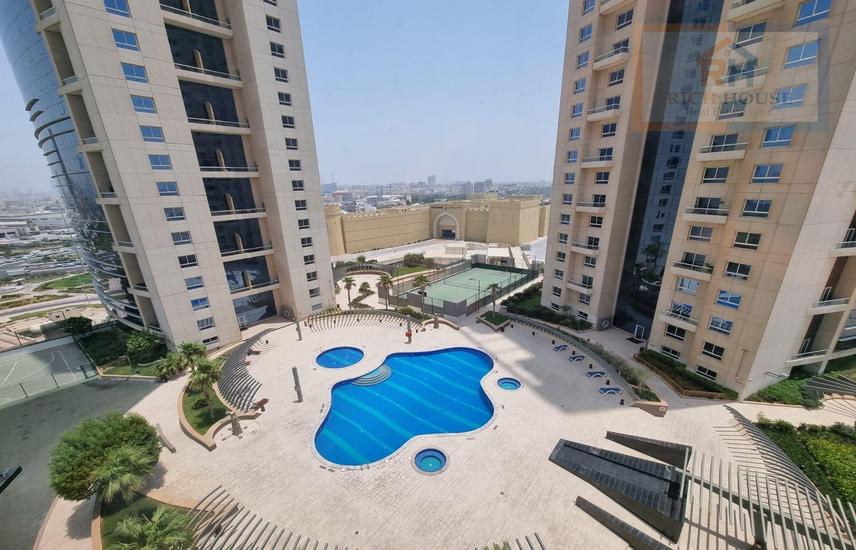
Foreigners are allowed to own freehold condos in Bahrain – and you’ll find plenty of housing developments in Manama.
By purchasing a freehold property worth at least US$530,000 you’ll qualify for a residence visa in Bahrain, which can be renewed every five years.
Buying property in a foreign country doesn’t automatically give you the right to live there in most cases. Bahrain’s golden visa, which also extends to your spouse and any children, is an exception.
Real estate investors in Bahrain have made a profit lately – those who bought property in the past few years have certainly done well.
Still, the cost of property in Bahrain vary substantially depending on location.
Prices in the center of Manama, for instance, tend to be relatively high compared to other areas of Bahrain, with prices ranging from approximately BHD 1,000 (about $2,700 USD) to BHD 2,500 (around $6,700 USD) per square meter in the city center.
However, real estate prices can easily be half that in other cities. You won’t find much in the way of employment outside of Manama, although everything’s rather close together in Bahrain and it gets significantly cheaper outside the capital.
In the free economic zones, foreign investors can lease land for specific industrial and commercial purposes, which could be useful for foreign businesses that want to operate within these zones.
Foreign companies may enter into Build-Operate-Transfer (BOT) agreements with the Bahraini government in some cases.
This allows non-citizens to use and develop land in Bahrain for specific projects. You never truly own it though. Instead, land use rights revert back to the government after the lease period expires.
Commercial property investors in Bahrain usually choose offices and warehouses. The Diplomatic Area in Manama serves as its finance district, while malls like the Bahrain City Centre and Seef Mall attract retail businesses.
Bahrain doesn’t have any income tax. In fact, they don’t have capital gains or sales tax either. Yet foreigners must pay 10% municipal tax on property sales.
Real estate buyers should also be aware of transaction costs, including registration fees and legal fees.
Startups and VC in Bahrain
Bahrain’s private equity industry is accelerating, targeting key sectors such as healthcare, tech, and manufacturing.
Private equity firms in Bahrain especially focus on digital finance, healthcare, and energy. The country has multiple PE funds with a range of specialties.
The main market for issuing equity is the Bahrain Investment Market (BIM), and it’s also possible to co-invest with local private equity firms.
It’s heartening to see progress made in building a venture capital ecosystem in Bahrain, driven partly through government programs and private sector participation, with start-ups flourishing in fintech and healthcare.
Initiatives such as Bahrain FinTech Bay or the StartUp Bahrain program provide support, networking opportunities and funding options to aspiring start-ups.
Bottom Line: Should You Invest in Bahrain?
Bahrain’s relative fiscal prudence and robust banking environment have supported economic stability over the years, while a fixed exchange rate with USD provides a stable currency. At least more than other exotic currencies in the region.
Furthermore, Bahrain has proven successful in diversifying its economy away from oil and into fast-growing industries like financial services, manufacturing, tech, and hospitality.
This reduced the country’s reliance on one specific industry and opened new avenues to foreign investors. In particular, there’s promise in Bahrain’s robust banking sector and VC ecosystem. It’s not just about gas anymore.
Both residential and commercial real estate in Bahrain make for attractive pickings which have steadily increased in value over the past decade.
Trading stocks in Bahrain as a foreigner is also possible. There are only about 40 listed companies, so you won’t have too many options, but there’s still some potential for profit.
Finally, so long as you stay out of the oil industry, your corporate tax rate will be zero. This by itself makes investing in Bahrain an attractive option.
FAQs: Investing in Bahrain
Why is Bahrain Considered an Attractive Investment Destination?
Bahrain is one of the most established financial and trading hubs in the Gulf region. The country offers a pro-business environment, a stable economy, and a fixed exchange rate with the US dollar, making it a reliable place for investors.
Additionally, Bahrain has been successful in diversifying its economy beyond oil into sectors like finance, real estate, and technology, creating more opportunities for foreign investors.
Can Foreigners Own Property in Bahrain?
Yes, Bahrain allows foreigners to own freehold property in designated areas such as Amwaj Islands, Juffair, and Durrat Al Bahrain.
This makes it one of the few Gulf countries where non-citizens can fully own real estate. Additionally, purchasing property worth at least $530,000 USD qualifies investors for a renewable five-year residence visa, making it an attractive option for those looking to live in Bahrain.
What Are the Main Benefits of Starting a Business in Bahrain?
Bahrain offers 100% foreign ownership in most business sectors, including real estate and trading. The country has no corporate tax for most industries, except for oil and gas companies, which face a 46% tax rate.
Additionally, Bahrain has free economic zones such as the Bahrain International Investment Park (BIIP) and the Bahrain Logistics Zone (BLZ), which provide tax incentives and exemptions for businesses.
How Does Bahrain’s Stock Market Compare to Others in the Region?
The Bahrain Bourse is one of the most transparent and well-regulated stock exchanges in the Middle East. Foreign investors can own up to 100% of publicly listed companies, and many brokerage firms allow non-residents to open accounts remotely.
Bahrain also has a highly developed bond market, offering government and corporate bonds for those seeking fixed-income investments.
Is Bahrain a Tax-Friendly Country for Investors?
Yes, Bahrain is one of the most tax-friendly countries in the Gulf. The country has no personal income tax, no capital gains tax, and no sales tax on most goods and services.
However, there is a 10% municipal tax on property sales that investors should be aware of. This tax-friendly environment makes Bahrain an attractive destination for both individual and corporate investors.


